Netflix has been investing a lot in the YA genre. It is evident from series like ‘Sabrina’, ‘The Rain’, and even ‘Bonding’ — stories that put teenagers at the helm of some dark stories. ‘The Society’ is another in line, and it just might be the best of all. It follows the story of a bunch of teenagers who realize how the world works when you are at the helm of it. Being the only people around, without any adults to guide or restrain them, they have to figure out a way to survive from the dangers that mostly come from their own society. If you haven’t yet seen the show, I suggest you stop here and go watch it ASAP. There are some huge spoilers ahead!
Summary of the Plot
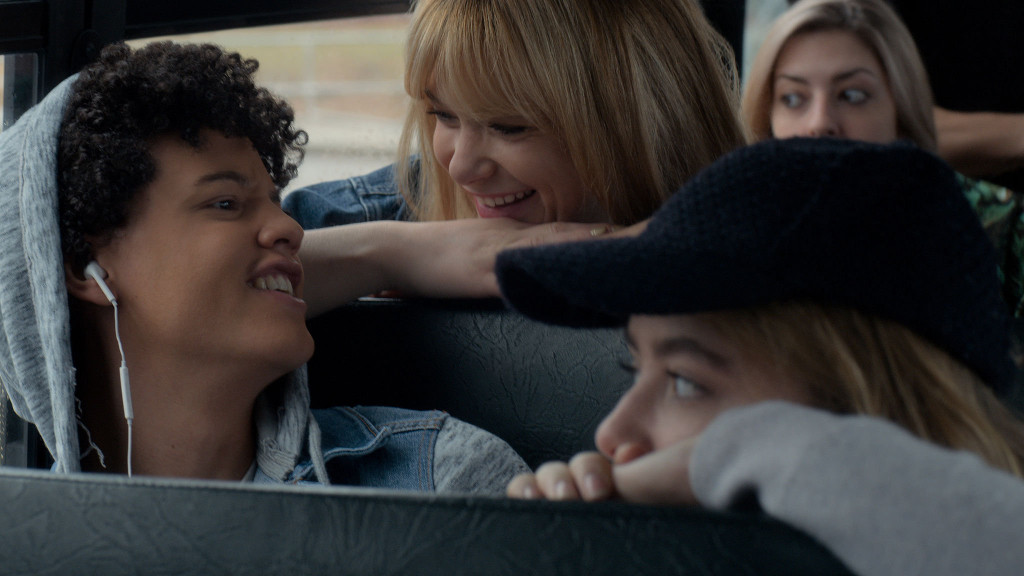
West Ham is a small town where everything is just as normal as it would be anywhere else. But there is a strange smell that bothers everyone. While the adults try to find a way to fix it, they decide it best to get the children out of town for a week. The teenagers are packed in four buses and sent off for the vacation. However, their trip is cut short when the driver announces that there is roadblock ahead and that they have been brought back home. In the middle of the night, the teenagers wait for their parents to come to pick them up, but no one answers any calls. Soon, they realise that everyone else in the town is gone. They are the only ones that remain.
Where Are They Now?
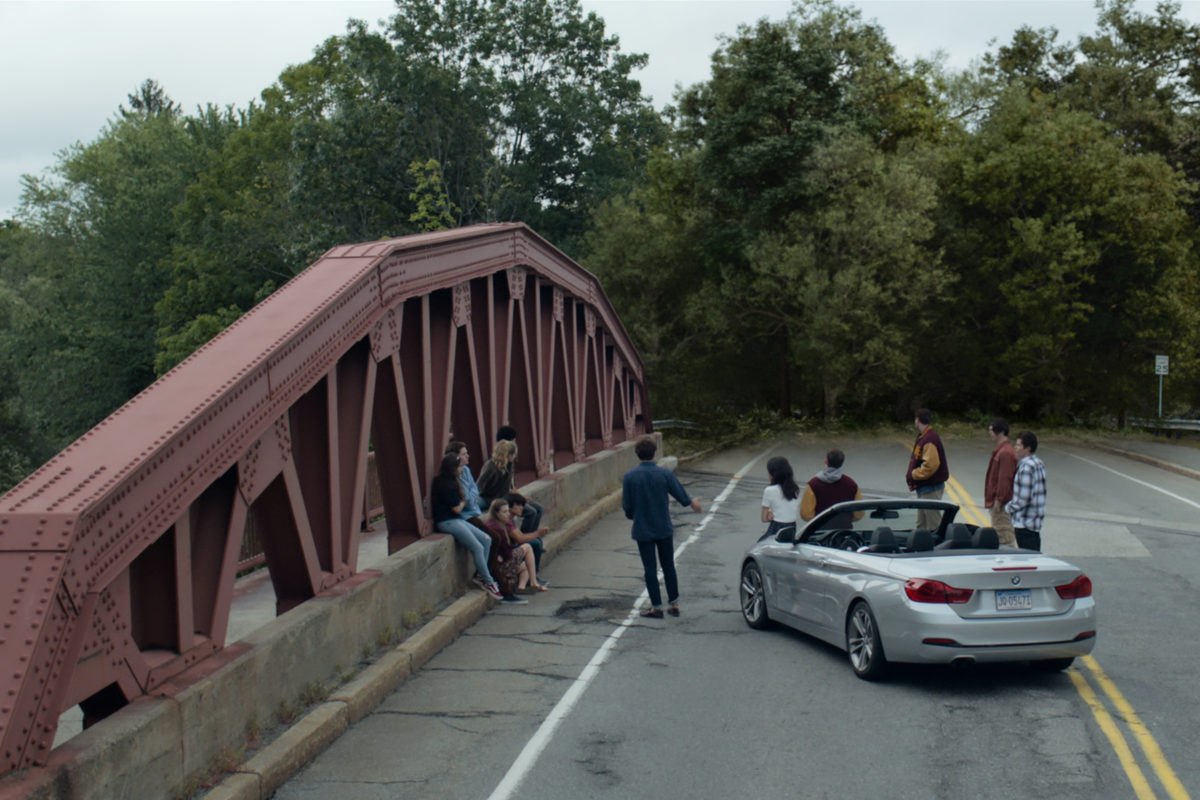
The way ‘The Society’ starts out, you might expect it to be a sci-fi drama. However, very quickly, it becomes crystal clear that the sci-fi and the mystery elements have only been infused to give some context to the story. The main purpose of the show lies in the exploration of human behaviour, what it means to form a society, and how easy it is for power to corrupt people. One of the reasons it stands out from its counterparts is that it allows itself to be mature about the things that teenagers should be mature about. It is more than just about break-ups and patch-ups and people bitching about each other. There is one small thing that needs to get out of the way before we plunge headfirst into that discussion. And that thing is the mystery that is rarely touched upon in the show — where are they now?
In the first episode, it becomes clear that these people are here to stay. Every way out of the town has been blocked. The roads, bridges, railroads, all of them are now obstructed by a thick cover of woods that stretch for miles and miles. They have obviously not returned to their hometown and they need to figure out what this place is. Had it been a show about adults, there would have been a science genius in the group who would brainstorm everything, mostly because they’d have been, at least partially, responsible for the current situation. The teens get their own version of genius in the form of Gordie, assisted by Bean. He is the brains of society. From an astronomer to a forensic expert to the one who runs the hospital, Gordie proves himself adept at everything. He might as well be the person who finds a way out of this place.
By the end of the season, everyone, or at least the main characters, becomes aware of the fact that their parents had something to do with what has happened to them. What happened here seems a lot like a version of ‘The Pied Piper’. There was a strange smell and no one knew where it came from or how to remove it. The parents hired a man named Pfeiffer to get rid of it, and he did. He then demanded his pay, but now that their problem is solved, the parents decide to not follow through with his payment. In revenge, not only did that man allow the smell back into the town, but he also kidnapped the children and left them in this strange, new place, which is definitely a parallel universe. In this universe, the Earth might not have been inhabited by humans, hence, the dense forest, no satellites and an unscheduled solar eclipse. The question now is how did they get here?
The Basics of a Society
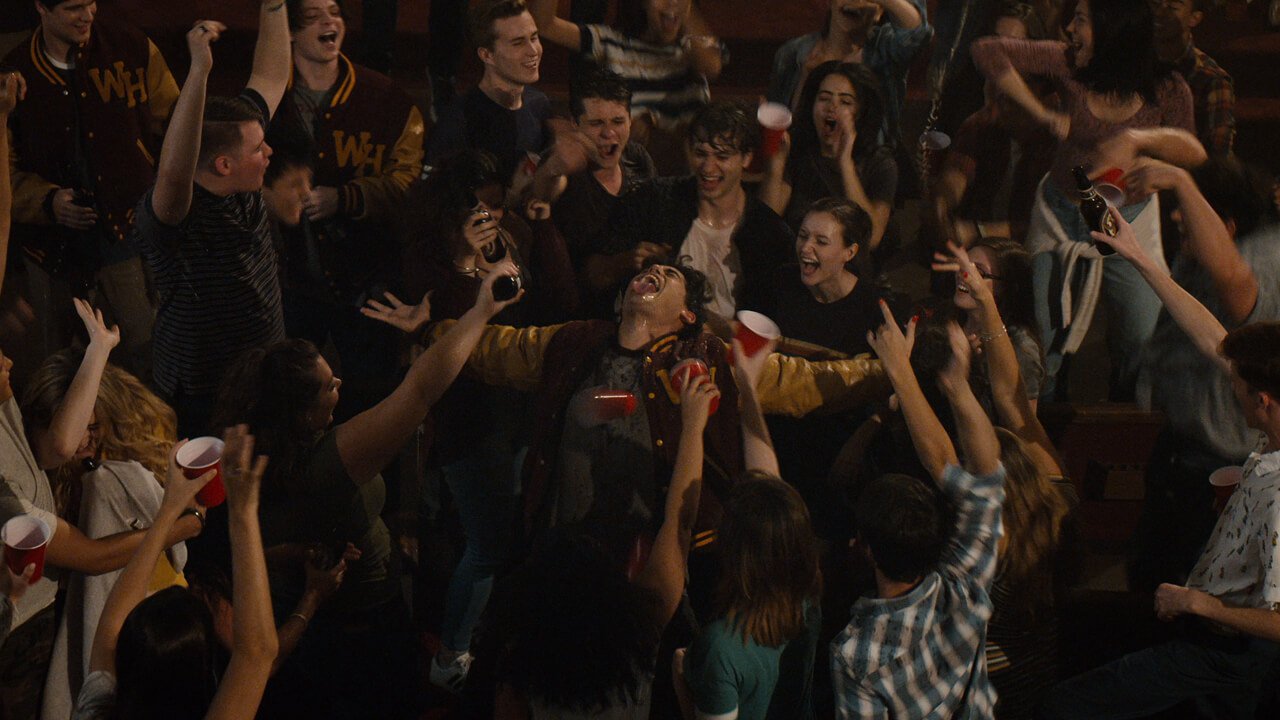
More than delving into the science of parallel universes and the conspiracy theories and what not, ‘The Society’ keeps itself grounded in exploring the various aspects of human nature, each of them represented by the characters of the show. There are people like Cassandra who are good and pure and want to do what’s best for everyone; there are people like Campbell, power hungry psychopaths who don’t care about anyone else; there are people like Kelly who were raised in privilege but are quick to understand that it doesn’t matter in the new world; and then there are people like Harry who want to hold on to that privilege, no matter what the cost.
Allie is the perfect representation of people who have “power thrust upon them” and Lexie represents that political rival who is blinded by revenge. For the handful of people who want to make things work, there are others who just want to have more power. Allie was right to separate the Guard from the elections because law creators can’t be enforcers too. No one should have absolute power. Brain and brawn should collaborate but never be the same. Her argument is further validated when the Guard is easily manipulated by Campbell and they seize power in a manner that reminded me of military coups that the world has seen over the years.
Politics is one of the core subjects of ‘The Society’ and that is what makes this show so important. The teenagers, who are its major audience, will get a sense of how important it is to question authority, how essential it is to give serious thought to who you want to be in charge of the power that can change the world. The clear distinction between anarchy and democracy is drawn in the show. No one is perfect, not even Allie. But she is the least bad of all, and isn’t that what democracy is about? Choosing the lesser evil!
‘The Society’ also gives us a glimpse of what the world can be like without any rules. If there is no one in charge, then it will be “every man for himself” sort of situation, and thus, no one will survive. Rules are important for any community to survive and thrive. This is why we have constitutions. Not only does it ascertain the rights and duties of a citizen, but it also gives us guidelines for justice. How do you handle a crime? Is “an eye for an eye” the best way to go about everything? It is the lack of a constitution, the absence of a fixed charter that leads people to have dissent against Allie. Was she right to kill Dewey? Should she have let Campbell go? Shouldn’t she have done something about Lexie’s mistreatment? How would she have handled Elle’s mistreatment at the hands of Campbell?
Justice is fragile. What is right to one might be wrong to the other. A fixed set of rules helps create a common ground for everyone. Otherwise, how can you guarantee anyone’s safety? How can you bring everyone together if everyone is free to do what they want?
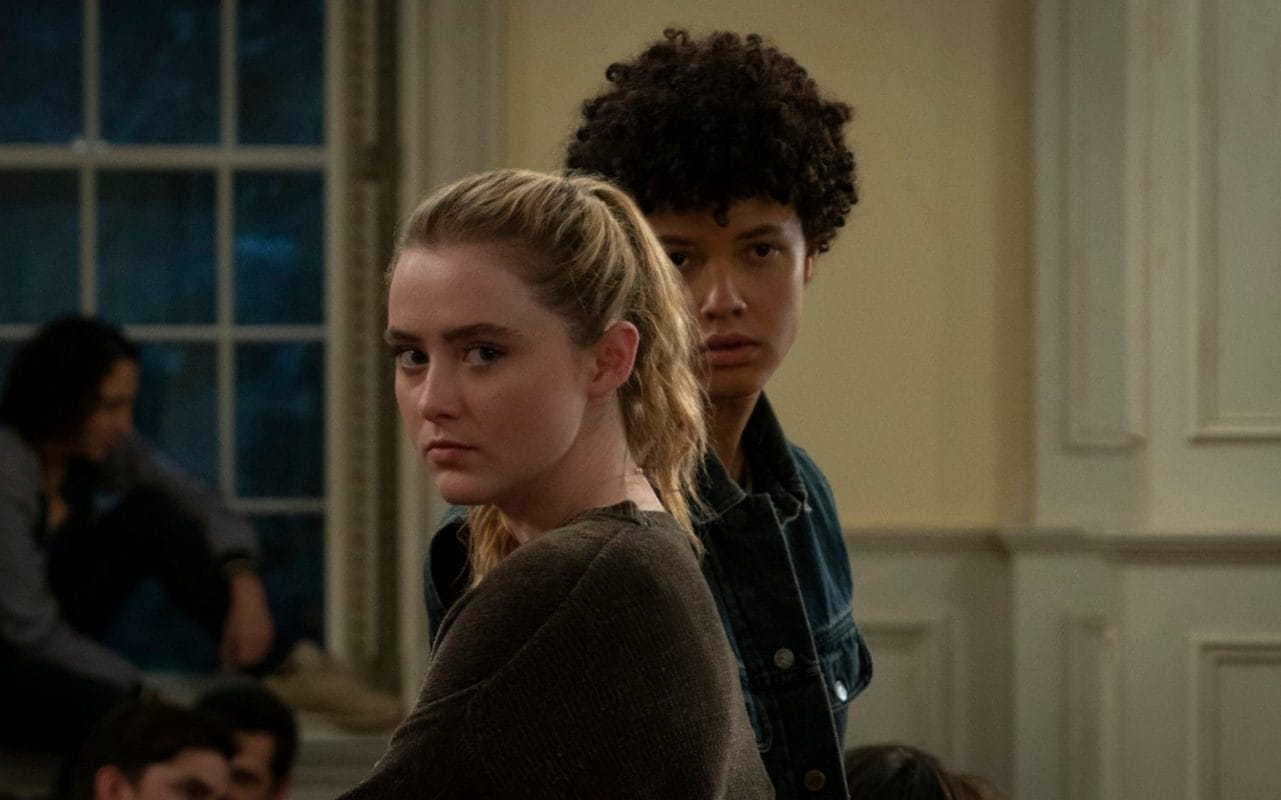
Everyone said that Allie was enforcing too many rules, without even asking what they wanted. This gave her the air of a dictator and hence, made it easier for everyone to hate her. However, “the top of the ladder is often a lonely place” and Allie accepted that. She was ready to not be with Will because she didn’t want to divert her attention. She might have been strict, but she was also ready to give up personal pleasures, and this is what makes her the most suitable leader of all.
Allie was good enough to protect Elle, but she was also bad to not help Lexie. She is crooked in some ways, and perhaps that’s why she could stay in power for so long. A quote from Chanakya says, “Straight trees are cut first.” This means that too much honesty, too much goodness can never be a good thing in politics. Look at Cassandra. She was too good for her own good. She didn’t anticipate that it wasn’t easy for people around her to accept a woman’s authority, no matter how good she was for society. And this led to her assassination, like that of any other political leader who had been too good for the world.
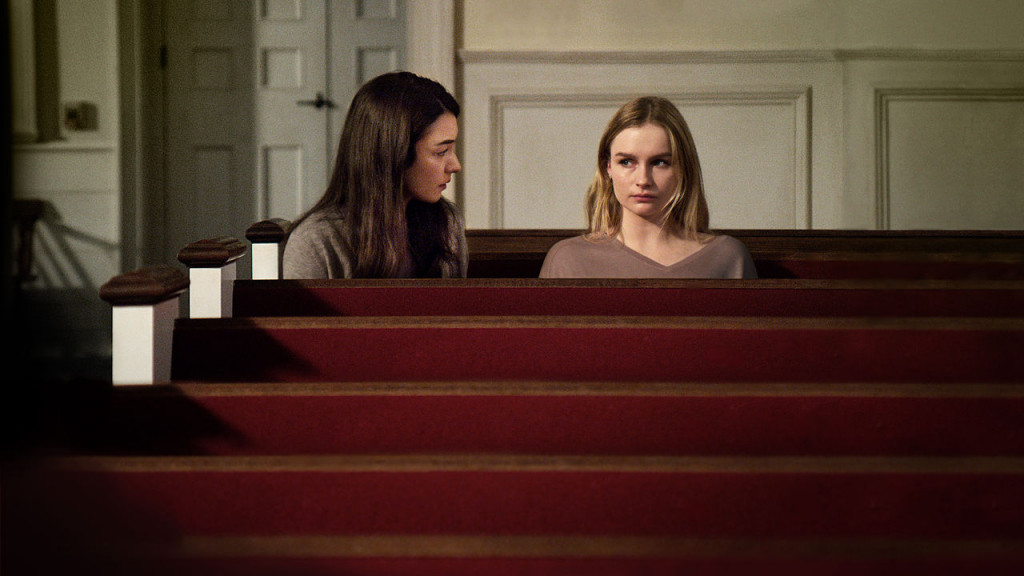
‘The Society’ has a great number of messages for its audience. Politics is just the tip of the iceberg. From teenage pregnancy to guns in the hands of teenagers, from the safety of women on the streets to domestic violence within closed doors, the show offers many colours, no matter how dark, to the viewers. I don’t think it is a coincidence that one of the gay characters in the show was the guy who had difficulty speaking for himself. It could very well be a metaphor for the LGBTQ community, who have been repressed for so long that they struggle to find their voice. My favourite characters in the show are Grizz and Kelly. They are extremely cautious of the bad things around them. They want to do good things for society but they are not dumb enough to follow anyone around like sheep. And this is exactly how one should be.
The Ending, Explained
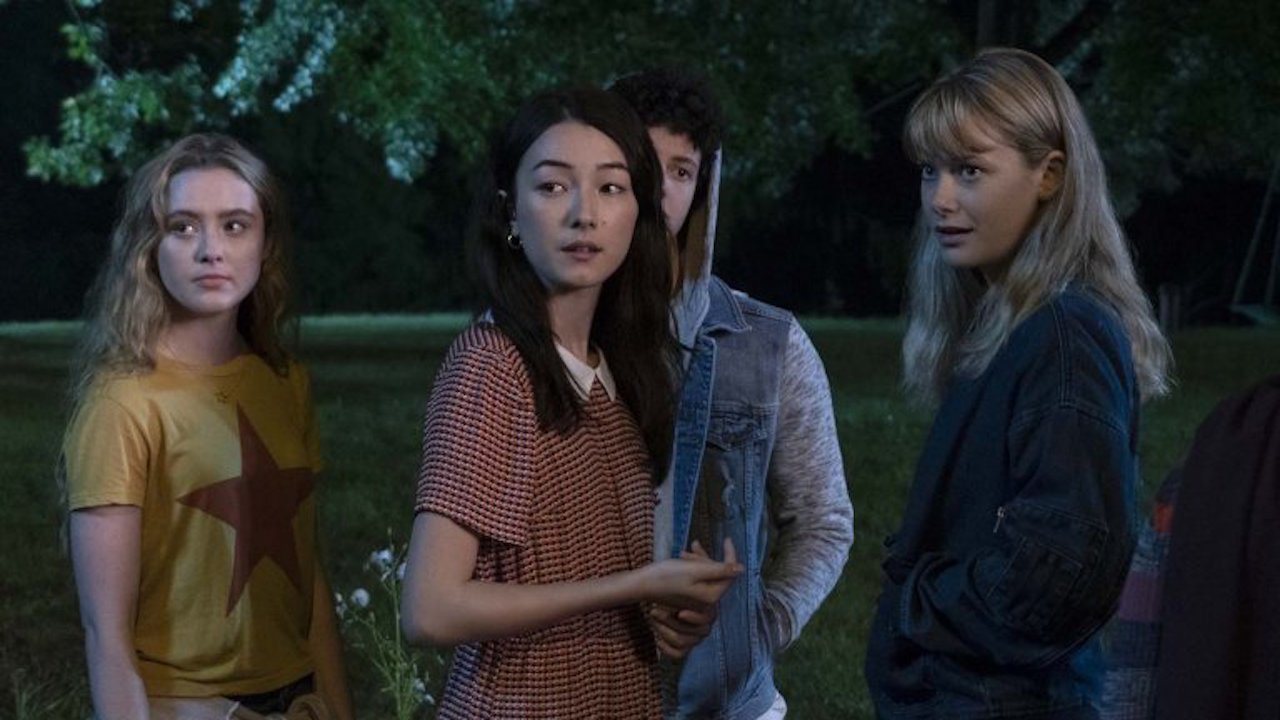
‘The Society’ takes a clever approach to its storytelling and leaves breadcrumbs for the audience throughout the show. Information is dropped in subtle moves and if you don’t pay attention, you might be left scratching your heads by the end. But, if you have been alert, you know exactly what to expect from the next season. Even when we are given a hint of what happened to the adults and where the teenagers are now, I don’t think the second season will be quick about furthering that plotline. We might get to see what’s happening in the original universe, but chances are extremely slim for that.
As it was clear from the last scene, the parents have acknowledged the fact that their children are gone and have a remembrance plaque with all their names (which sort of reminded me of ‘Endgame’). However, I don’t expect that they have made their peace with it. Their children disappeared overnight; you’d expect them to do something about it! It has been six months but that doesn’t mean that they have given up, especially if they have even the faintest hint of what happened to their children. In the second season, we might get to see their side of the world and what they are doing to bring them back. But again, it seems unlikely to form a major part of the next season’s story. The other and most important question that needs to be answered is, what was that smell? Where did it come from and how could Pfeiffer make it disappear and reappear? If the mystery of the smell is solved, it would be a huge step for the teenagers to find their way back home.
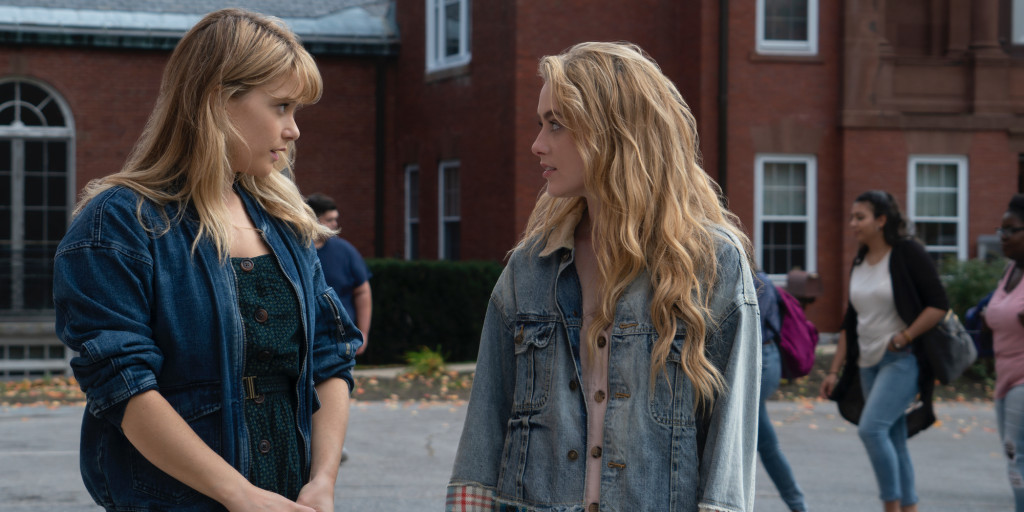
However, flowing in the same vein as the first season, I believe that the second, too, will be majorly focused on the societal structure. Now that Allie has been dethroned, how will the society survive? The people in power now — Lexie, Harry and Campbell — only care about one thing: power. Harry is not a leader. The only reason he stood up for the position of mayor was that Campbell coaxed him to. Harry has no idea how to make things work, especially because he himself couldn’t work. The only thing he cares about is his so-called privilege and pills. Even if he had won the elections fair and square, he would have been too high to govern anything.
Lexie is just as unsuitable for the task as Harry. All she cares about is getting back at Allie. In the Thanksgiving show, she made an open statement about how she believed Allie was a dictator. And to be honest, Allie did give her, and everyone else, some reason to believe that. However, does that mean that Lexie should overthrow her? Does being a victim of Allie’s arrogance make her a viable candidate? No, absolutely not. It is not wrong to question authority, or to express your views, or to demand justice for humiliation by the Guards who are supposed to protect the society. It would be great to have someone else in charge, for a change.
However, Lexie proves herself unfit because she is driven by revenge. She bases her candidacy on the promise that she “will stop Allie”, and talks to everyone about how they have been forced to do things like picking up the trash and cooking food for everyone. But, what’s the alternative? If you allow everyone to work or not work according to their wishes, how do you expect to run the society? The idea shouldn’t be just to “stop Allie”, it should be about what new and better things she can bring to the table. But Lexie hasn’t given any thought to it. In fact, she is so hell-bent on having her revenge that she becomes a part of the coup. If she really was so concerned about everyone, she wouldn’t have allowed Campbell to talk her into this political backstabbing. She wouldn’t have used lies to gain the position. There were other options that she could have considered. But she has no idea what she is doing, and that becomes her undoing.
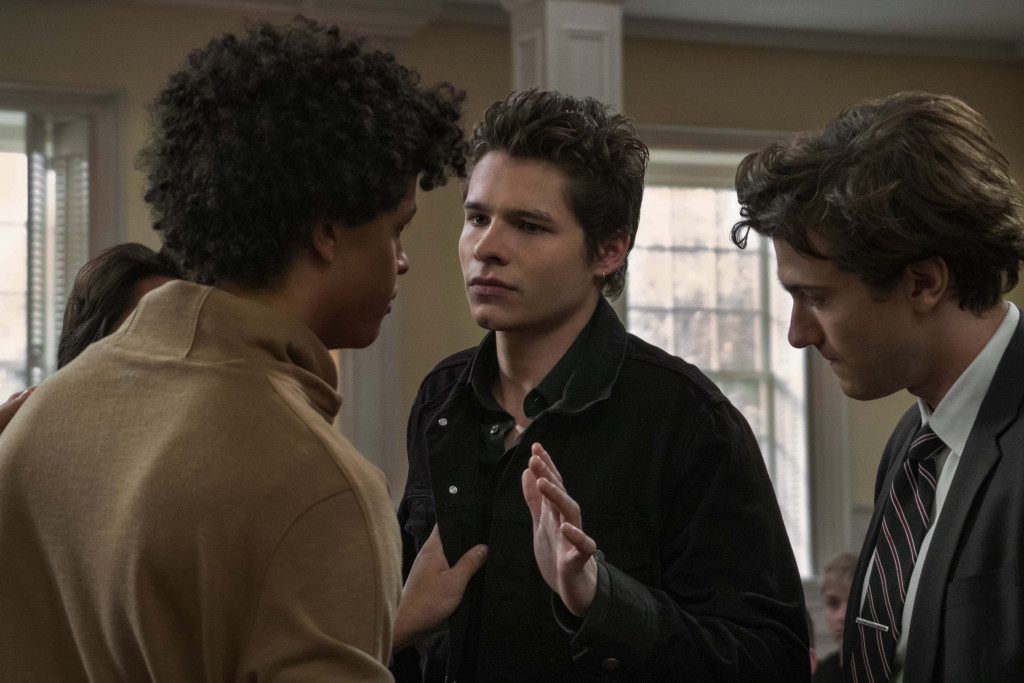
This leaves Campbell as the showrunner, which he always had been in the first place. Sam was right about him. He plays with people’s minds and that’s what makes him more dangerous than anyone else. Allie should have never let him go in the first place. She is dearly paying for it now, so I think she has learned her lesson. With Lexie and Harry too weak and too dumb to enforce any control, Campbell will be in charge of the town. And that is a very scary thing. He is manipulative, he knows what it takes to seize power and stay in it, and above all, he controls the Guard, which means he has power.
With such incompetent leaders and a psychopath at the helm, the future of the society seems bleak. They haven’t changed anything, so everyone has to go back to following Allie’s rules. They have promised re-elections in the near future, but we all know that’s not going to happen. Things are only going to get worse, and that’s what season two will focus on. Allie and her allies(!) will have to come up with a very tight plan if they mean to set things right again.
The Society’s Next Season: What to Expect?
One of the things that could gain momentum in the next season is the unfolding of the mystery of the Pied Piper and how to find a way back. The thing that had me nagging from the first episode was “what happened to the drivers?” Every other adult is gone and for the rest of the season, there are only teenagers. Even if they somehow crossed a portal that landed them here, what about the drivers of the bus. They entered this universe with the children, and were nowhere to be seen after dropping them off!
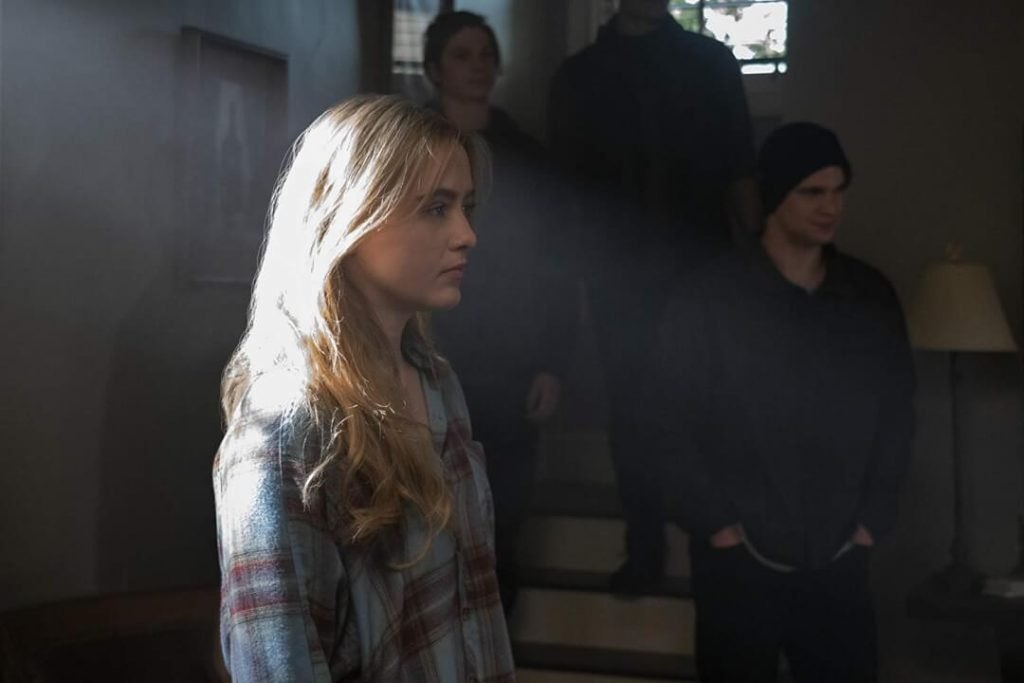
In the end, Kelly realises that the driver was Pfeiffer, so he is the one who brought them here. While being stranded in a parallel universe is a scary thought, the detail that the drivers are nowhere to be seen is actually a very hopeful thing. This means that either they are with them, hiding somewhere, or they went back to the original universe. The first case seems very unlikely, which increases the possibility of the second case. This means if these drivers have a way in and out of the town, then the teenagers can find and access that too. This theory is further backed by the fact that it is not only the drivers who have access to that portal, or door. Someone else has been using it too — Charlie, the dog.
Did you notice that there were no animals in sight in the whole town? Didn’t it seem strange? Even the birds that we see in the show appear in the very last episode. The only animal in sight is the dog. He appeared out of nowhere when Cassandra was shot. He disappeared for a while and then appeared in the front yard of Campbell’s house, where Elle took a liking to him. Then he suddenly disappeared. Now, we were led to believe, just like Elle, that Campbell, being the psycho of the town, had killed the dog, which is what made me hate him even more. Even if Elle wasn’t scared enough of Campbell, she becomes so after Charlie goes missing. We watch him wash his hands while he tells her that the dog must have gone out or something. We draw the obvious conclusion, but, and it did nag me at that moment, we don’t really see blood on his hands.
The last scene of the season shows Charlie alive and well, and to our amazement, back in the original universe. We know that animals have another set of senses, more heightened than humans, that allows them to find out things that we never could. Is it so then that Charlie has sniffed out a way to the parallel universe? It wouldn’t come as a surprise to me if the dog saves everyone. There is a reason they are “man’s best friend.”

